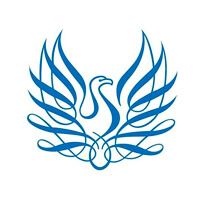fees waived
Biomedical Science, BSc (Hons)
Coventry University, United Kingdom
Subject ranking
UK / Guardian 2025 42nd
UK / QS 2026 53rd
UK / Times 2025 54th
Costs
food & rentS$17.2K / year
Entry requirements
Scholarships
Unlimited quantity
Unlimited quantity
Unlimited quantity
Limited quantity
Information
Code
Intakes
Website (External)
Programmes
Information
Duration
2028
Our Biomedical Science degree integrates various biological disciplines to foster a deep understanding of human body functions and disease biology. Biomedical scientists are essential in healthcare, contributing to disease diagnosis, prevention, treatment, and the development of advanced diagnostic tools and therapies. Students gain hands-on experience in state-of-the-art laboratories, such as those in the Alison Gingell Building, where they develop key skills in laboratory techniques. The curriculum explores human physiology from whole systems to cellular and molecular levels, emphasizing areas like clinical biochemistry, medical microbiology, cellular pathology, haematology, immunology, and genetics.Key benefits include access to well-equipped labs for industry-standard training, support for placements in professional settings, and student-centred teaching that encourages independent experimentation and problem-solving. Taught by experienced staff with hospital and research backgrounds, the course features a common first year shared with related programs, followed by specialized modules in years two and three, including topics like infectious diseases, cancer biology, and a final-year independent project. The program aligns with accreditations from bodies such as the Health and Care Professions Council and the Institute of Biomedical Science.
This course has a common first year The common first year enables you to work alongside students doing similar courses to you, to widen your knowledge and exposure to other subject areas and professions. You will have the opportunity to collaborate with other students, so you can share your insights and experience which will help you to develop and learn. If you discover an interest in a specific subject you have studied, upon successful completion of your first year, you could swap degrees with another course in your common first year (subject to meeting progression requirements). Common first year courses Biological and Forensic Sciences BSc (Hons) Human Biosciences BSc (Hons) Pharmacology BSc (Hons) Year One In the first year, the curriculum is shared across related courses allowing you to gain a broad grounding in the discipline before going on, in the second and third years, to specialist modules in your chosen field. Modules Human physiology: Homeostasis and Health - 20 credits Genetics, Heredity and Evolution - 20 credits Structure, Function and Analysis of Biomolecules - 20 credits Cell Communication, Structure, and Function - 20 credits The Microbial World - 20 credits Applied Techniques in Biology - 20 credits Year Two In Year two, you will develop more advanced knowledge and skills to do with infectious disease and immune defence, genetic basis of disease, haematology and blood disorders, cellular basis of disease and metabolic and endocrine disorders, among others. Modules Genetic Basis of Disease - 20 credits Infectious Disease and Immune Defence - 20 credits Haematology and Blood Disorders - 20 credits Cellular Basis of Disease - 20 credits Metabolic and Endocrine Disorders - 20 credits Biomedical Science Professional Practice - 20 credits Placement Year There’s no better way to find out what you love doing than trying it out for yourself, which is why a work placement can often be beneficial. Work placements usually occur between your second and final year of study. They’re a great way to help you explore your potential career path and gain valuable work experience, whilst developing transferable skills for the future. If you choose to do a work placement year, you will pay a reduced tuition fee of £1,250. For further information please check the course page on the Coventry University website. During this time you will receive guidance from your employer or partner institution, along with your assigned academic mentor who will ensure you have the support you need to complete your placement. Final Year Year three aims to bring you to the level to enter the world of work by consolidating your knowledge and skills from years one and two. You could also work on a large final project in an area of your interest, with the support of a mentor and your Academic Personal Tutor. Modules Medical Microbiology and Virology - 20 credits Clinical Biochemistry and Immunology - 20 credits Cancer Biology - 20 credits Clinical Haematology and Transfusion Science - 20 credits Research Design in Biomedical Science - 20 credits Independent Project in Biomedical Science - 20 credits We regularly review our course content, to make it relevant and current for the benefit of our students. For these reasons, course modules may be updated. For full module details please check the course page on the Coventry University website.
A local representative of Coventry University in Singapore is available online to assist you with enquiries about this course.

